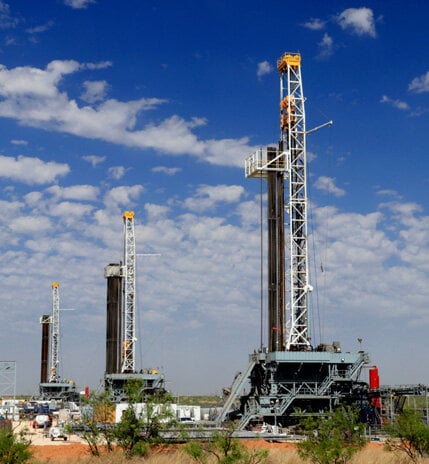EPA programs and varying state regulations affect operator choices
Disposal of drilling fluids and solids may be the last part of an operator’s fluids management program. However, if this process is not planned and executed correctly it can negatively impact an entire drilling project. The ever-changing regulatory landscape can be difficult to maneuver, and improper disposal can cause environmental harm and result in fines for the operator. Understanding and adhering to varying disposal guidelines is critical to a successful fluid management program.
In Texas, oil and gas plays are governed by the Railroad Commission of Texas (RRC) including the Barnett Shale, Eagle Ford Shale, Granite Wash, Haynesville/Bossier Shale, Cotton Valley and Permian Basin. Although originally established in 1891 to prevent discrimination in railroad charges and establish reasonable tariffs, RRC is now the steward for Texas’ natural resources and environment and as such, the recycling of solid and liquid hydrocarbon waste falls within this agency’s jurisdiction.
The RRC encourages operators to recycle oil and gas waste. Commercial recycling rules directly related to permitting are found in Texas’ administrative code, Title 16 Economic Regulation, Part 1 Railroad Commission of Texas, Chapter 4 Environmental Protection, Subchapter B Commercial Recycling, and begin with Division 1 General; Definitions. Divisions 2 through 6 specify the permitting requirements based on the type of oil and gas waste being treated and the location and duration of the treatment operations. A full summary page of the RRC’s commercial recycling rules, divisions and permitting exclusions may be viewed here.
Following local and state disposal rules and regulations, and maintaining proper permits mitigate an operator’s financial risk. Improper disposal and handling of drilling waste in Texas may result in fines of up to $10,000 a day for each waste violation committed according to Texas’s Natural Resources Code Title 3 Oil and Gas.
States typically have their own separate waste management regulations. Common state regulatory parameters include:
- Liner requirements for pits
- Secondary containment requirements for tanks
- Setback requirements for solid waste management facilities
- Freeboard requirements for fluid levels
- Permitting of solid waste management facilities requirements
In addition to changing regulations, these regulations can vary from state to state. For example, complicated disposal permitting processes in one state may drive some operators to dispose of drill cuttings in an adjoining state where regulations and permitting are more favorable.
In another example, closed-loop systems are being increasingly mandated by state governments across the country. In New Mexico, closed-loop systems are required/recommended for environmental purposes and regulations. Closed-loop systems also reduce the amount of liquids requiring disposal and produce dryer cuttings, therefore increasing fluid system efficiency. The Pollution Prevention Best Management Practices for the New Mexico Oil and Gas Industry can be found at the New Mexico Energy, Minerals and Natural Resources Department web site. Neighboring Texas regulations are not as strict so operators working in an area that straddles state borders such as the Permian Basin will have to understand the differences in regulations.
On a national level, in April 2014, The U.S. Environmental Protection Agency (EPA) published the Review of State Oil and Natural Gas Exploration, Development, and Production (E&P) Solid Waste Management Regulations. The review was conducted to assist EPA regulatory programs in assessing the strengths and weaknesses of state regulations concerning oil and natural gas E&P solid waste management.
In April 2019 the EPA performed a review of federal solid waste regulations and concluded that revisions to the federal regulations for the management of exploration, development and production wastes of crude oil, natural gas and geothermal energy were not necessary.
These examples show the critical necessity of a trusted and proven fluids management company with experience operating across state lines. Safe and efficient disposal of solids and fluid is critical to the overall success of the project. Proper haul-off and disposal keep companies in compliance with governmental regulations while avoiding the risks of ground and water contamination.
Panther Fluid Management has the experience to assist your company with all of its solids and fluid disposal needs. Our system designs are backed by years of experience and have consistently lowered overall mud costs for clients. We consult with the operator to design the best fluids system for each well; including everything from discrete services like mud and screens to fluids engineering to complex closed-loop systems for solids control to haul-off and disposal. More importantly, we understand the total fluids life cycle and can prepare for many contingencies based on well conditions. Contact Panther Fluids Management today for the latest in drilling fluids technology.








